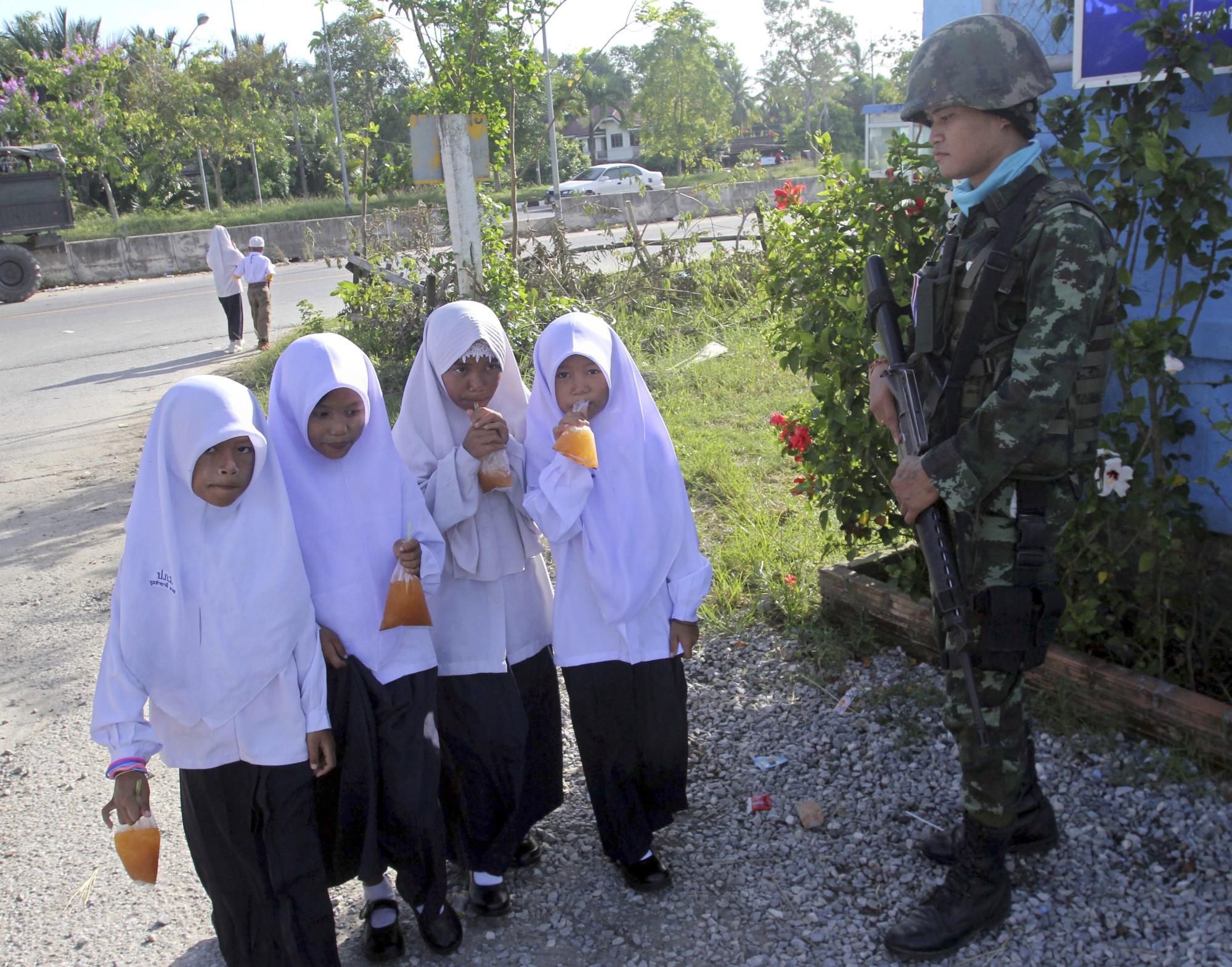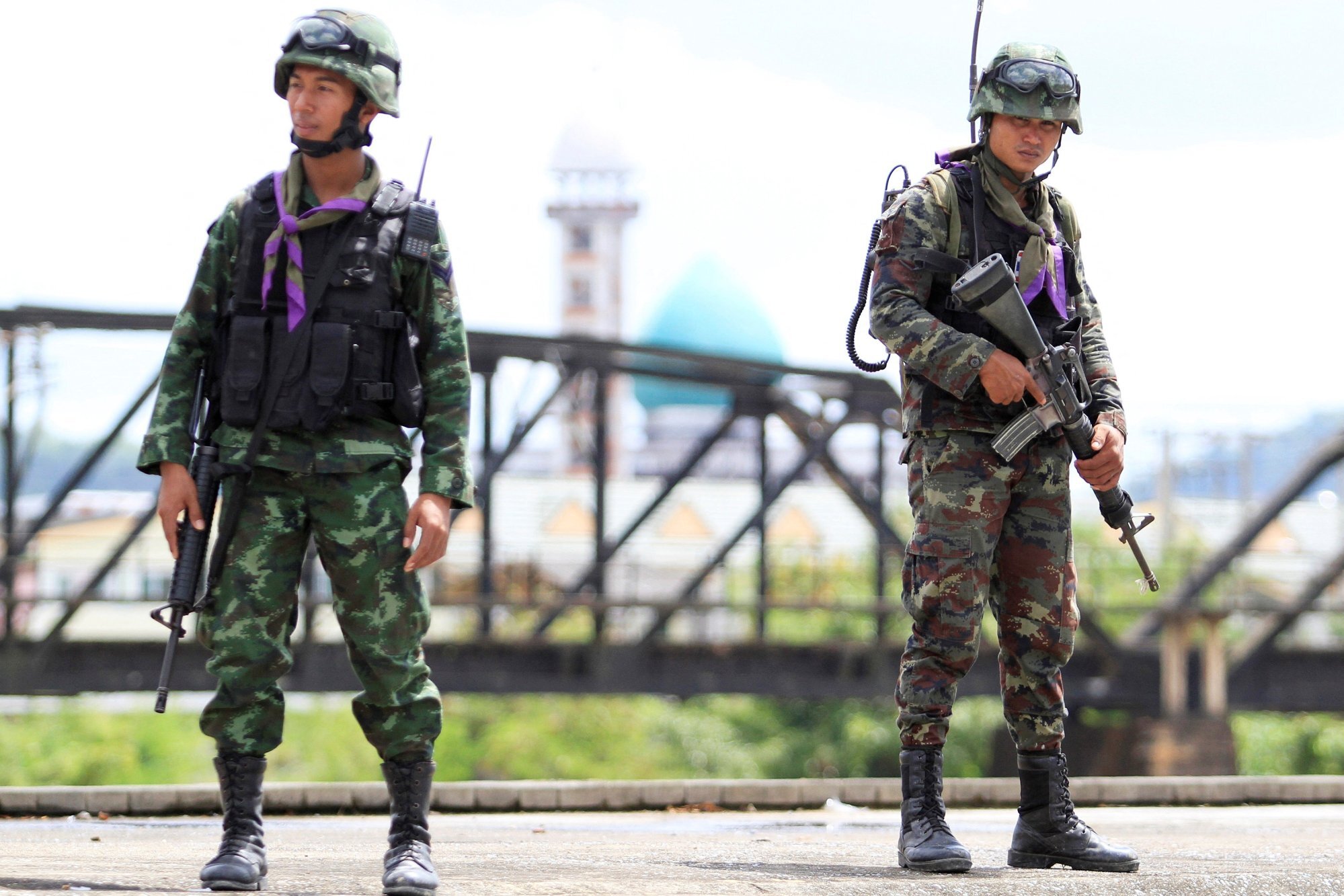
Thai government, separatists say Malaysia-brokered peace talks progressing well
- Thai officials and the Barisan Revolusi Nasional representatives met in Kuala Lumpur this week to seek common ground to end the conflict in the kingdom’s Deep South
- The two sides also agreed on a substantive part of the agenda including issues such as language, education and culture for upcoming discussions
The Thai government and a key separatist group in the country’s south have indicated that their first face-to-face negotiations since the Covid-19 pandemic began has yielded positive results, raising hopes of concrete progress towards restoring peace in the region after nearly two decades.
The Thai government’s team led by chief negotiator General Wanlop Rugsanaoh said Prime Minister Prayuth Chan-ocha’s administration hoped ultimately to create a conducive environment for peace in what it calls the Southern Border Provinces of Thailand.
Both sides could achieve interim peace by each resolving to unilaterally reduce violence, said the Thai Peace Dialogue Panel in a statement.
“If implemented, this gesture would mark the progress of the peace dialogue process and offer positive changes for the people,” the group said.
According to local conflict monitoring network Deep South Watch, 7,224 people have died and 13,427 sustained injuries linked to the insurgency between 2004 when it first emerged and February 2021.

The region comprises about three million largely Malay-speaking and Muslim people in otherwise Buddhist-majority Thailand. Victims of the fighting include Malay-Muslims, Thai Buddhist civilians as well as Thai soldiers, police and rebel fighters.
Fighting has largely been muted during the Covid-19 pandemic due to a declaration of ceasefire on humanitarian grounds by the BRN. Still, the group claimed responsibility for detonating six bombs in the southern province of Yala on December 31.
The BRN’s negotiation team led by Anas Abdulrahman said on Thursday the latest talks has resulted in both parties agreeing on a substantive part of the agenda for upcoming negotiations.
“The issues are language, education, culture, and economics,” Anas said in a rare appearance before international media in Kuala Lumpur.
These issues are at the heart of the conflict, with the separatists saying the region’s Malay culture was being eroded by the Thai government’s “Thaification” policy to assimilate all citizens of the kingdom into the dominant traditions of central Thailand.
Despite the odds, Abdul Rahim Noor, the Malaysian facilitator of the talks and a former national police chief, said he was optimistic that progress could be made in the post-pandemic era.
“I can tell you that both sides are keen to find a solution to the situation in the Deep South,” he reportedly told BenarNews in an interview, adding that only a political solution can solve the insurgency.
“But finding the solutions that both can agree with will take time. At least another two years.”
The Thai government previously engaged with a separate faction in 2013, Mara Patani – an umbrella organisation of Malay-Muslim separatist fronts – before they were sidelined in 2020 and replaced by BRN.
Despite differences of opinion between the factions, the spokesperson of Mara Patani expressed confidence in the progress reached by BRN.
“We hope this process proceeds in good faith and both sides are committed to what has been agreed,” said Abu Hafez Al-Hakim.

Patani United Liberation Organisation (PULO), another separatist group which has not entered into negotiations with Bangkok, also sounded an optimistic note over the talks.
“PULO consistently held the belief that conflict resolution in Patani will only be realised through the negotiating table,” said its leader Kasturi Mahkota.
Political expert Tunku Mohar Tunku Mokhtar from the International Islamic University Malaysia said what mattered ultimately was the “end goal” of both sides in engaging in the talks.
“Both parties have different objectives: the BRN demanding greater autonomy while the Thai government wanting to retain its sovereignty over the land,” said Tunku Mohar.
A key to progress would be political will on both sides to achieve peace, he said.

